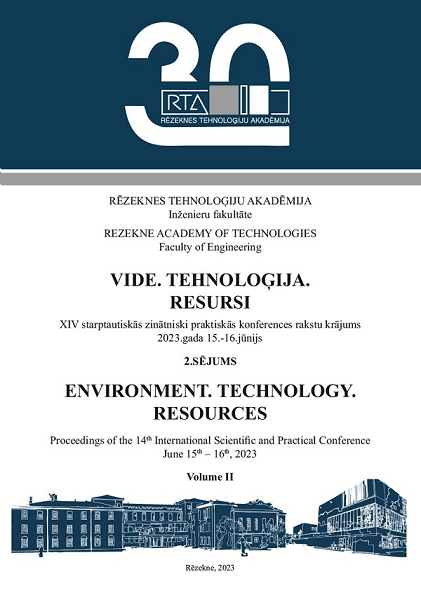FUZZY RELATIONS BASED INTELLIGENT INFORMATION RETRIEVAL FOR DIGITAL LIBRARY USERS
DOI:
https://doi.org/10.17770/etr2023vol2.7218Keywords:
Digital library, user needs, fuzzy relations, recommender systems, scientific and technical informationAbstract
It is known that today information and library systems are one of the main sources of information needs of the population and have many users. Information and library systems have a large amount of valuable information resources and information retrieval services have been established to allow users to find the necessary literature. We know that search engines take requests and return results they think are relevant. As a result, the user again faces the problem of finding what he needs among the many sources of information provided.
Today, a number of information systems effectively use recommendation systems based on artificial intelligence to recommend objects. In information and library systems, high efficiency can be achieved by identifying the information needs of users and recommending relevant literature.
To do this, it is necessary to determine the information needs of library users by analyzing information about their age, interests, level of knowledge in a particular area, previous requests, professions, etc. By introducing recommender systems into library information systems, it is possible to facilitate the work of librarians, increase speed and accuracy finding the necessary source of information, increase the efficiency of management and the level of satisfaction of the information needs of the population.
The article proposes a fuzzy model for solving the problem of assessing the needs of users of information and library systems and recommending relevant literature to them.
References
Bates, Marcia J. Information Behavior In Encyclopedia of Library and Information Sciences, 3rd Ed. 2010.
Charles Naumer, Karen E. Fisher, Information needs, Encyclopedia of Library and Information Sciences, 2017, doi: 10.1081/E-ELIS3-120043243
Zhang, Q., Lu, J. & Jin, Y. Artificial intelligence in recommender systems. Complex Intell. Syst. 7, 439–457 (2021). doi: 10.1007/s40747-020-00212-w
Cox, Andrew. (2022). How artificial intelligence (AI) might change academic library work: applying the competencies literature and the theory of the professions. Journal of the Association for Information Science and Technology. doi: 74.10.1002/asi.24635
F.O.Isinkaye, Y.O.Folajimi, B.A.Ojokoh. Recommendation systems: Principles, methods and evolution, Egyption Informatics Journal 2015.
Rakhmatullaev M. Situational Management of Complex Information Systems Based on Fuzzy Correspondence Models. ICISCT-2019, TUIT named after Muhammad Al-Khwarizmi, Tashkent, Uzbekistan_4-6.11.2019. doi: 10.1109/ICISCT47635.2019.9012035
N. Cao, R. Valášek and S. Ožana, "Composition Models of Fuzzy Relations Considering Importance Levels of Features," 2022 14th International Conference on Knowledge and Systems Engineering (KSE), Nha Trang, Vietnam, 2022, pp. 1-6, doi: 10.1109/KSE56063.2022.9953776
Morawski, Jason & Stepan, Torin & Dick, Scott & Miller, James. (2017). A Fuzzy Recommender System for Public Library Catalogs. International Journal of Intelligent Systems. doi: 32.10.1002/int.21884.



